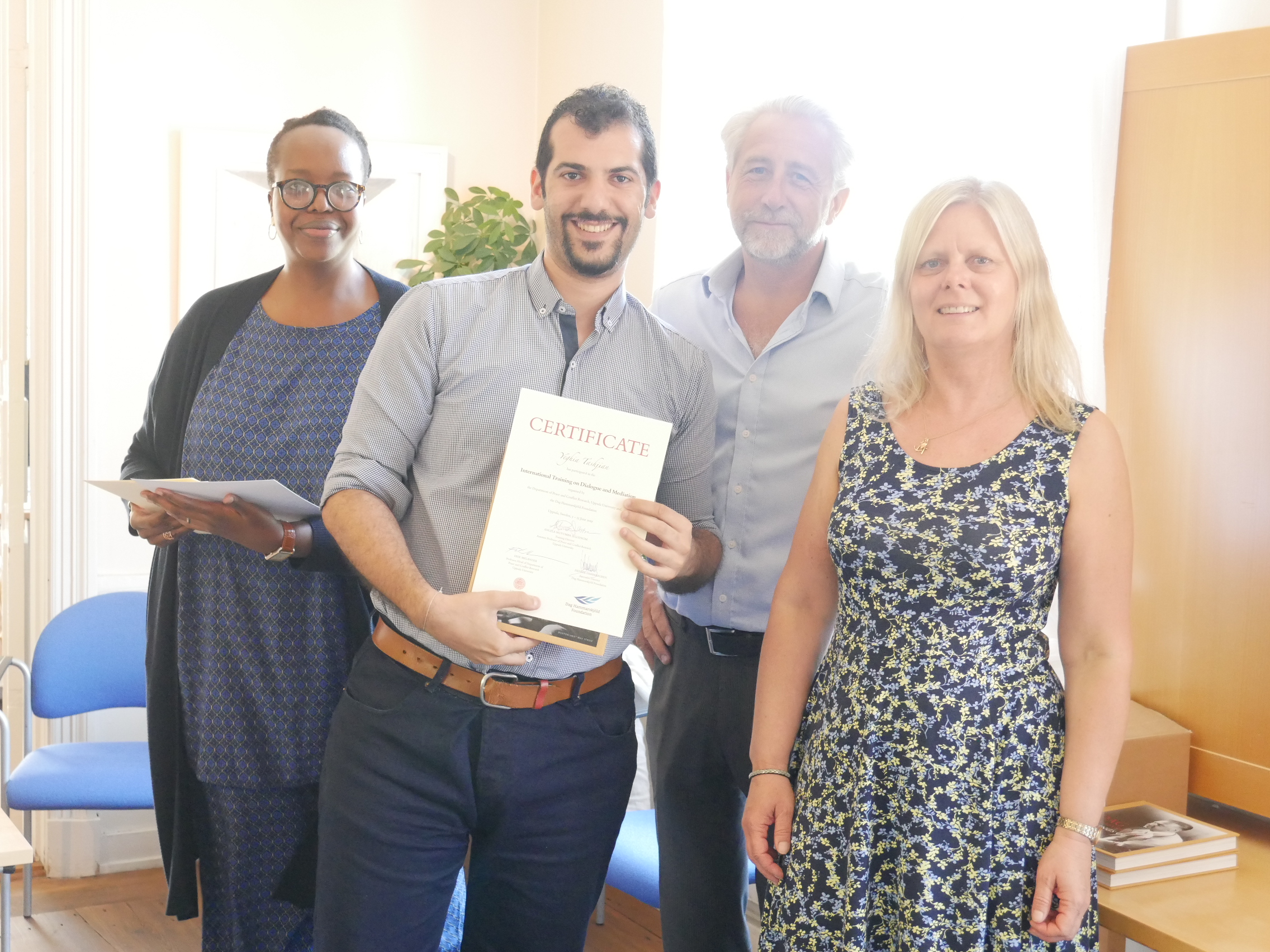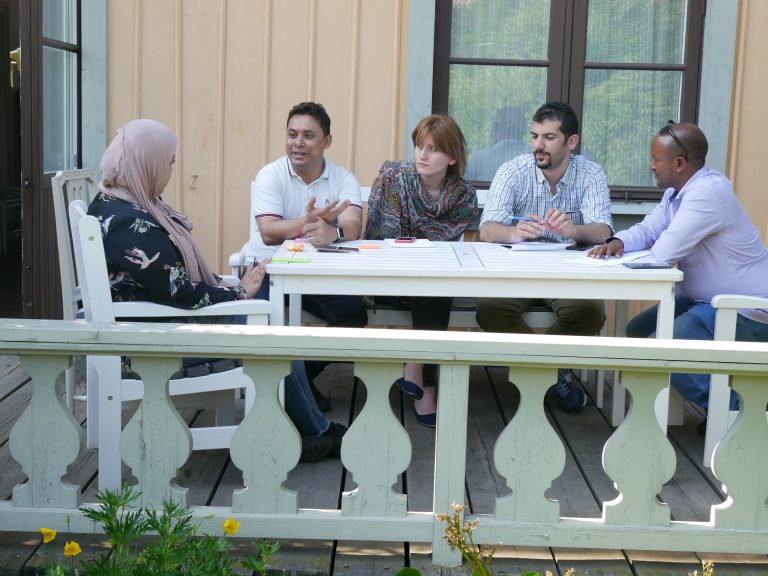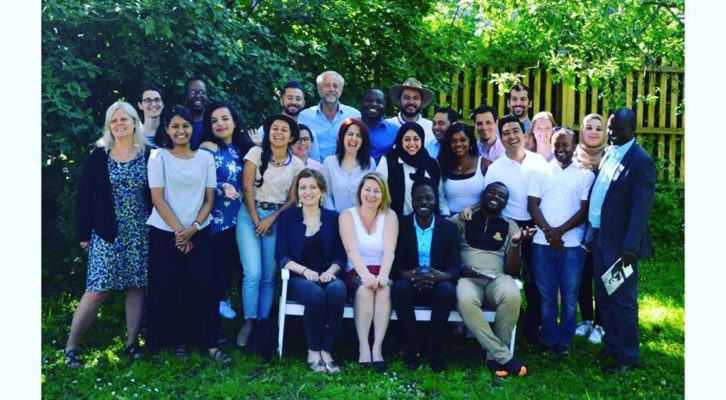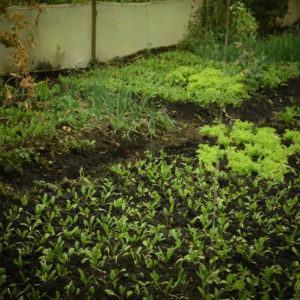
The author during the certificate ceremony at the Dag Hammarskjold Foundation.
Ten days were enough for me to create a big international family in Uppsala. Twenty-three participants from different parts of the world gathered at the International Training on Dialogue and Mediation organised by Uppsala University’s Department of Peace and Conflict Research and the Dag Hammarskjöld Foundation. The legacy of Dag Hammarskjöld, as the UN Secretary-General during decolonisation, had a strong impact on us. We were diverse people from different religious, ethnic, and professional backgrounds but one thing united us; our dedication to conflict resolution and the spread of sustainable peace. Quickly we realised that day by day there was a strong bond being built between us during interactions and in small group discussions (Of course, the ‘fikas’ – Swedish coffee breaks – had their influence too.)
Going beyond my regional knowledge
Previously, I had heard little about the peace agreement in Colombia, the details of the negotiation process in Yemen, the polarisation in Ethiopian society, the acts of genocide in Myanmar, and other conflicts outside my geographical scope. As I tried to fill the gaps and connect the dots I realised that the conflicts and the wars that we face are deeply rooted in economic, political, and social issues that our countries are facing. Before coming to Uppsala, conflict resolution and peacebuilding were phrases that seemed abstract to our reality in the Middle East. Wars, whether communal or intrastate have devastated our economies, and refugees are still flooding our streets. Lebanon, the country where I come from, with a population of almost four million has, since 2011, accepted around two million Syrian refugees and hundreds of thousands of Palestinian refugees who escaped the 1948 Arab-Israeli war.

The author, the second from the right with a group of participants during a discussion session.
Reflecting on my own context
Between 1975 and 1990 Lebanon experienced 15 years of communal civil war and the country turned into a proxy battleground of regional and international actors. In 2011, David Hirst published a notable book Beware of Small States: Lebanon, Battleground of the Middle East. The book charts the interplay between this complex and diverse country and the broader struggles of the region. Lebanon had a long civil war and since then there has been insufficient reconciliation, transitional justice, or peacebuilding processes. We thought that a foreign-imposed ‘peace agreement’ would put an end to our decade-old conflict, and that we would be able to forget political sectarianism and build a nation with civil laws. However, we were soon to be disappointed, frustrated and betrayed. The political elites divided the spoils between themselves, and in the name of ‘consociational democracy’ and sectarian harmony (often referred to as communal coexistence between Christians and Muslims), they legitimised their rule. That is why we must never allow ourselves to be manipulated by political elites or authoritarian leaders, to be silent in front of corruption and injustice, or to be a tool in spreading hate speech. As South African archbishop and social activist Desmond Tutu once said: ‘If you are neutral in situations of injustice, you have chosen the side of the oppressor.’ Therefore, how come we still remain silent?
We cannot stand silent when our fellow human brothers and sisters are being persecuted in our own countries or in other parts of the world.
Justice and peace, hand-in-hand
I had the perception that tensions between peacemakers and champions of justice are inevitable in societies ridden with violent conflict. However, the discussions in the training programme helped me to find ways to resolve these differences. While peacemakers tend to minimise the tensions, champions of justice prevent the occurrence of future conflicts. This is why both should go hand-in-hand. This idea helped me to develop creative options in a working paper that I developed as part of the training, titled: ‘A Century and Beyond; Structural Conflict Prevention and the Armenian-Turkish Conflict’. I have started questioning myself. How is it that peacebuilding is employed in the Armenian-Turkish context while justice is not implemented, understanding that this would require the recognition of the Armenian Genocide by the Turkish authorities. But then, I have realised that peacebuilding is the first step towards a just society where human rights are valued.
Our shared responsibility
The training programme in Uppsala opened my horizon and pushed me to challenge the traditional narratives and discourse that I used to employ in my research and peacebuilding efforts. I have gained important skills in constructive dialogue, mediation, master suppression strategies, active listening, and the importance of inclusivity in such processes. However, all this skill building would not have been as transformative if we had not engaged in the discussions we had during the ‘fika’ interactions between the organisers, lecturers, and the participants. I have learned a lot about many conflicts, how they are addressed and the obstacles for peacebuilding efforts. From Latin America to South East Asia, from Africa to the Caucasus and the Middle East, we have developed a network of solidarity. I met great people, who shared their experiences, love, and stories with each other. Those moments cannot be forgotten, they have become part of who I am today. From this short experience, I have learned that peacebuilding is not an easy task, as I always state, peace is a process, sometimes painful, but never an accomplishment or an end by itself. We have to struggle to preserve it. It is our shared responsibility, and peace cannot be preserved without freedom; that is love.







